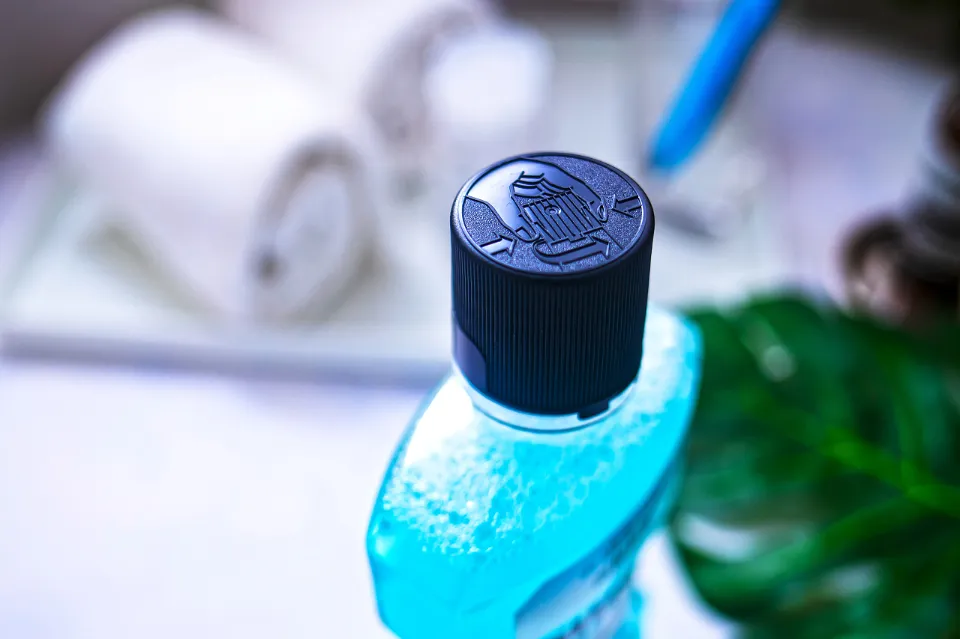
Will Listerine Kill Tooth Infection – Oral Health Care
Because tooth infections can be uncomfortable and worrying, many people look for additional remedies and treatments. There are concerns about Listerine’s capacity to eradicate tooth infections, a popular mouthwash known for its antimicrobial properties.
In this article, we’ll examine Listerine’s efficiency in preventing tooth infections and its value as an additional tool for maintaining oral health. Although Listerine may have some advantages, it is crucial to remember that it cannot replace regular dental care.
By being aware of Listerine’s potential and including it in a thorough oral hygiene regimen, you can help prevent and treat tooth infections and improve overall oral health.
What Are the Ingredients in Listerine?
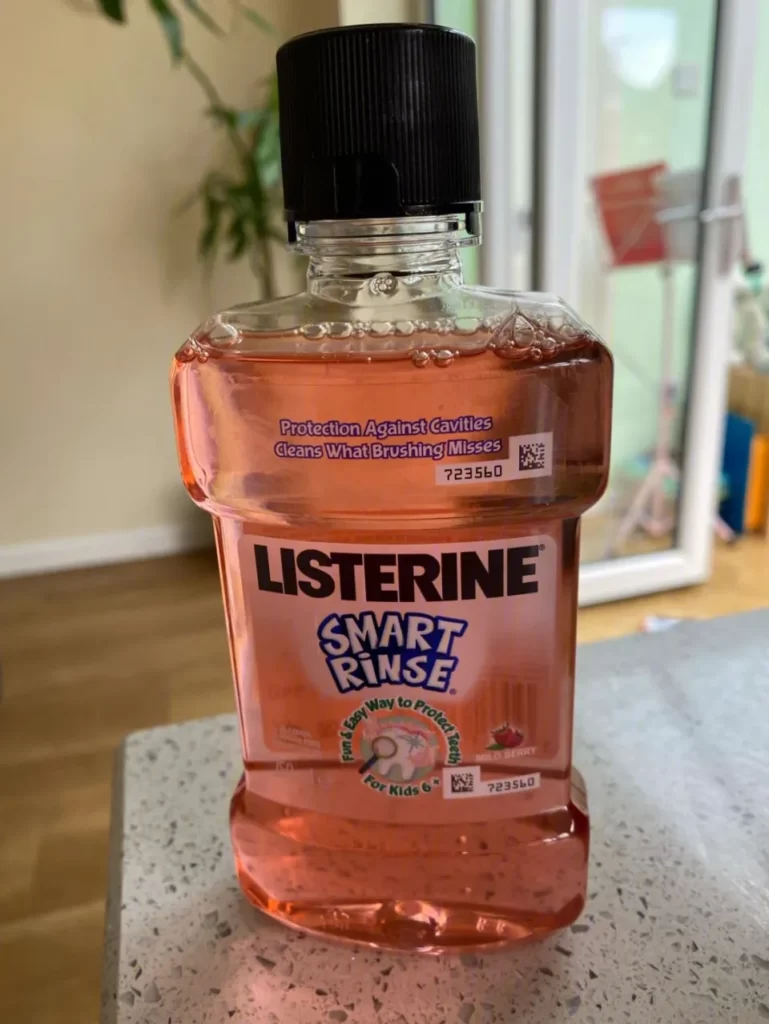
Over the past century, Listerine‘s formula has undergone a number of changes. Today, it includes a variety of active ingredients that cooperate to help kill bacteria and improve breath freshness. Here are some of the main ingredients commonly found in a Listerine mouthwash:
- Eucalyptol: Eucalyptol, a naturally occurring essential oil with antiseptic and anti-inflammatory properties that is derived from eucalyptus oil. It helps to eliminate oral bacteria and lessen gum inflammation.
- Menthol: It is a compound made from mint that helps to cool the mouth and freshen breath. Listerine’s recognizable minty flavor is a result of menthol.
- Thymol: It is a pure, organic essential oil made from thyme oil. Thymol is a potent antiseptic and antimicrobial agent that aids in regulating bacterial development and lowering plaque accumulation on teeth.
- Methyl salicylate: Methyl salicylate, a salicylic acid derivative, has analgesic and anti-inflammatory effects. It lessens the discomfort brought on by oral infections and soothes sore gums.
- Ethanol: Alcohol is frequently used in mouthwash as a solvent and preservative. This prolongs the shelf life of mouthwash products while enabling the dissolution of other active ingredients. The antimicrobial qualities of alcohol also help to kill bacteria and lower the risk of gum disease.
Will Listerine Kill a Tooth Infection?
It makes no claims that this mouthwash can lessen or combat tooth pain. Although it does eliminate germs, you might not always experience the desired lack of dental pain as a result. Therefore, if you use this mouthwash while experiencing tooth pain, it’s possible that it will relieve your symptoms by making your mouth feel fresh.
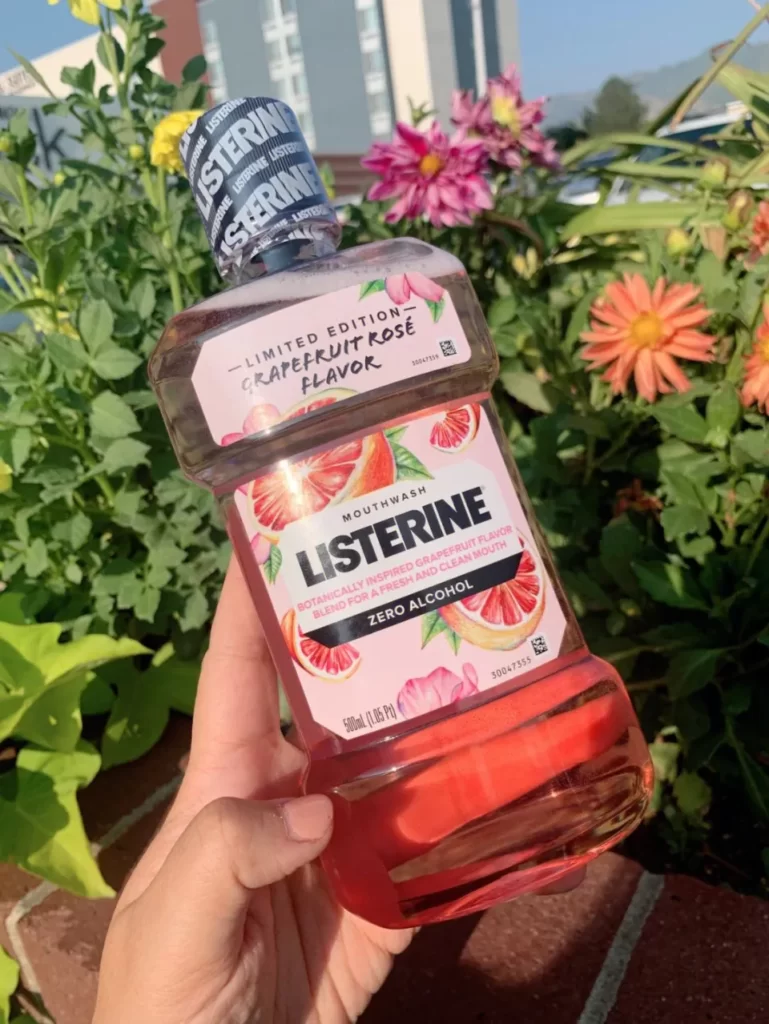
The cause is that a tooth infection typically spreads past the tooth’s enamel. If the infection has spread to the bone, it won’t be possible for a mouthwash to reach the inside of the tooth where it is located. A mouthwash can thoroughly rinse the outer enamel.
On this dental x-ray, pay attention to where the tooth infection is. Are you able to make out the sizable dark circle at the root’s tip? This large dark circle is present on just one tooth, and it is situated inside the bone. It is ineffective because there is no way for Listerine to penetrate the bone and treat the infection.
Will Listerine Kill a Tooth Nerve?
Okay, so it doesn’t relieve pain, but won’t the Listerine at least kill the tooth nerve?
The response, regrettably, remains unchanged. The label does not say anything about rectifying nerve pain from your teeth. The tooth’s nerve is located inside the tooth, so the answer to that is more physically based. You can’t get to the nerves because they aren’t on the surface. The only way to get to the nerve is to “open” up the tooth. You won’t be able to manually crack open your tooth.
The mouth rinse cannot reach the tooth unless the tooth is exposed. Your tooth can only be opened up in this way by a dentist, like any of our LIC dentists. We’d be happy to assist you with that if you came to our office in Long Island City.
Last but not least, are you still perplexed about the best mouthwash for a tooth infection given that it neither relieves tooth pain nor damages the nerve, so what good can it possibly do?
Will a Mouthwash Kill a Gum Infection?
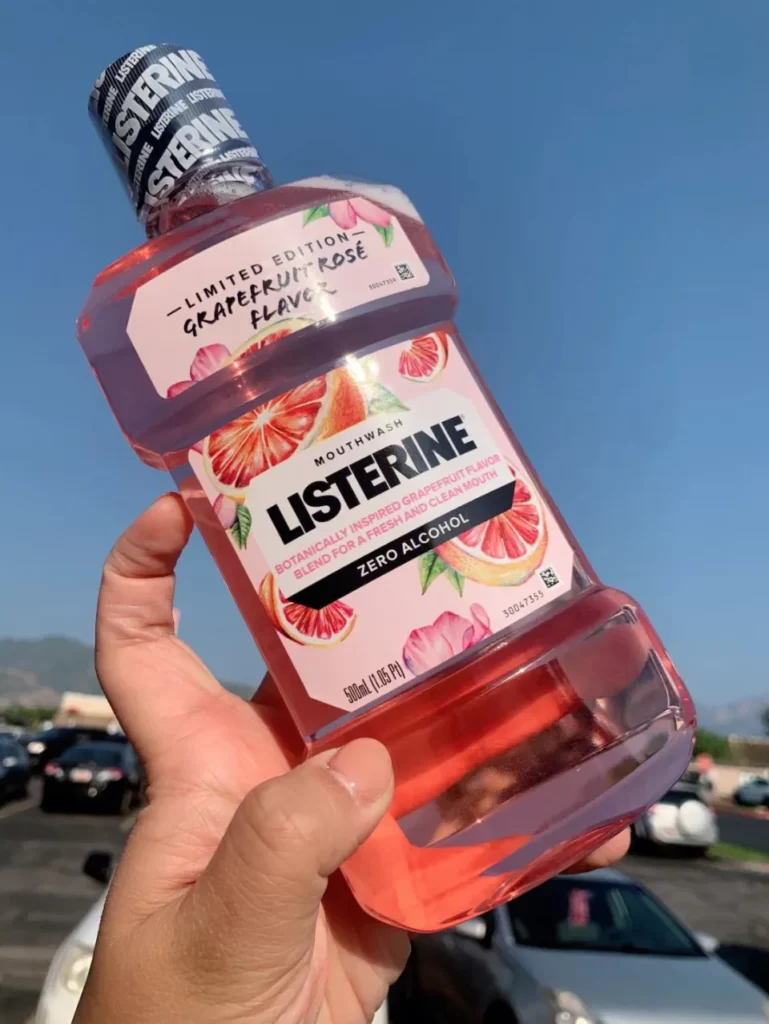
The answer is, it depends. If the infection is coming from the tooth, you might not have a chance, as in the cases mentioned above. However, Listerine may be useful if the infection is coming from the gums that surround the tooth. In fact, it might be the mouthwash that helps a gum infection the most.
Both plaque and bacteria can contribute to gum infections. Simply put, reducing plaque and germs is what Listerine does. Your gums may swell up like in the image above if plaque and tartar are present next to them. Using a mouthwash can help you control your swollen gums. The least it can do is stop it from getting worse, even if it doesn’t completely cure the condition.
The caveat is that calculus is what you have if your soft plaque has turned into hard plaque. Listerine will not get rid of calculus. A qualified dentist or dental hygienist is the only person who can remove the hard calculus or tartar.
What Will Eliminate Tooth Infections?
Take a cue from what your dentist does if you wanted to know how to treat an infected tooth long-term. They treat the infection using one of three methods.
Dental procedures to eliminate tooth infections:
- By physically removing an infected nerve from the tooth, root canal therapy is performed.
- tooth extraction that involves taking out the entire tooth.
- Antibiotic prescription.
Your dentist doesn’t have or is aware of any other ways to treat infections in your tooth besides these procedures.
Root Canal
The nerve will be physically removed from the tooth during a root canal procedure. The unwell nerve is removed from the tooth, but the tooth remains in the jawbone. One of the methods your dentist most frequently employs to treat your infected pulp and tooth nerve pain is this one.
Because it can no longer feel cold, hot, or any sensitivity at all after the procedure, the tooth is regarded as dead.
Extraction
The entire tooth and any associated infection will be removed during a tooth extraction from the mouth. The source will be removed even though this is a more invasive and drastic treatment option. Also Read: Can I Use Mouthwash after a Tooth Extraction
After that, you might want to think about using an implant or a bridge to replace the missing tooth. Your ability to chew food effectively and efficiently will be impacted by missing a tooth.
Read More: Do’s & Don’ts After a Tooth Extraction
Antibiotics
Your dentist will probably advise you to take an antibiotic if you have an infection. Taking it will lessen the swelling and infection while also reducing the inflammation.
Did your dentist ever advise you to use Listerine in place of antibiotics if you’ve previously had an infection? Never would be the response.
When to See a Doctor
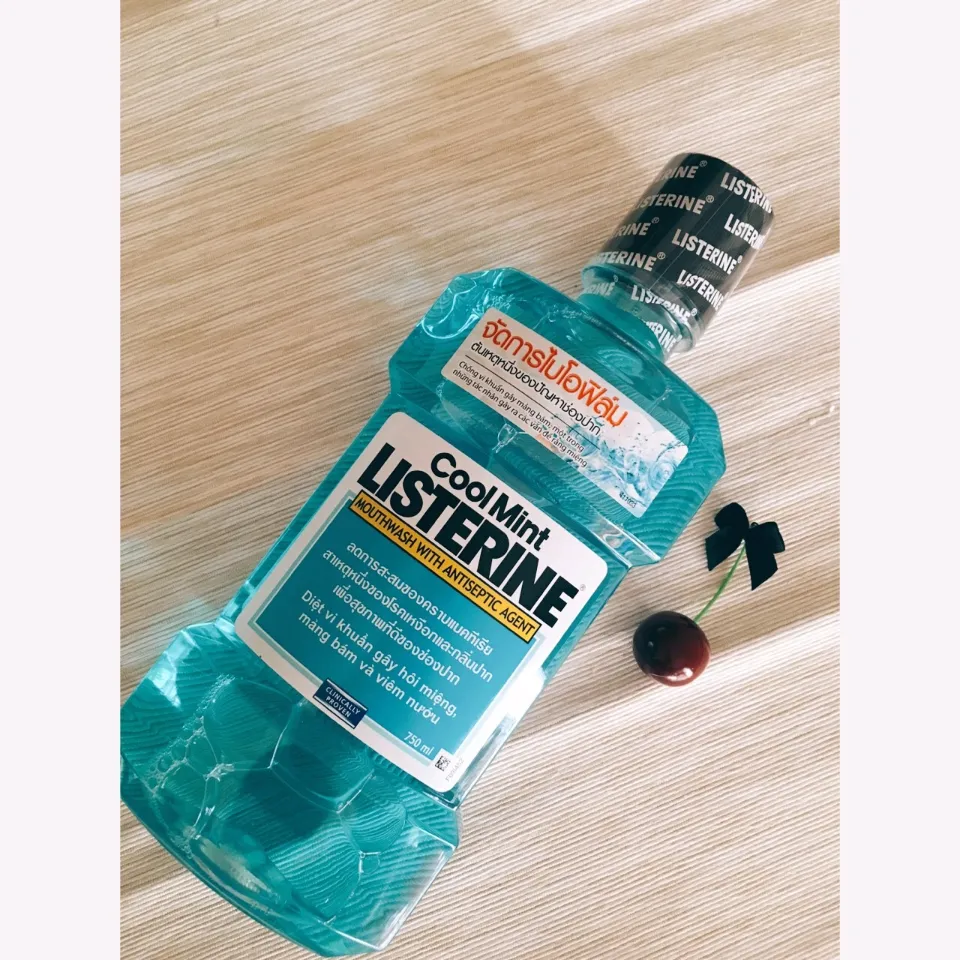
If you are experiencing tooth pain, you should try to schedule a visit with your dentist as soon as you can. The home remedies that do work are only palliative in nature, meaning they only temporarily reduce the symptoms without addressing the cause.
Treatment of the root cause, which necessitates a dental expert’s assistance, is necessary for long-lasting relief. In the absence of that, you are merely putting the problem off.
Alternative Mouthwash for Tooth Infections
Chlorhexidine, an actual antibacterial rinse, is a mouthwash available only on prescription. Inflammation, swelling, and infections of the gums can be effectively treated with it.
Although it can handle minor infections, a dentist must still be consulted for treatment of more serious ones. Nevertheless, as an additional recommendation to their care, your dentist may still advise you to use this rinse.
Despite how effective the rinses may be, if you have an infected tooth, you should still visit a dentist.





Average Rating